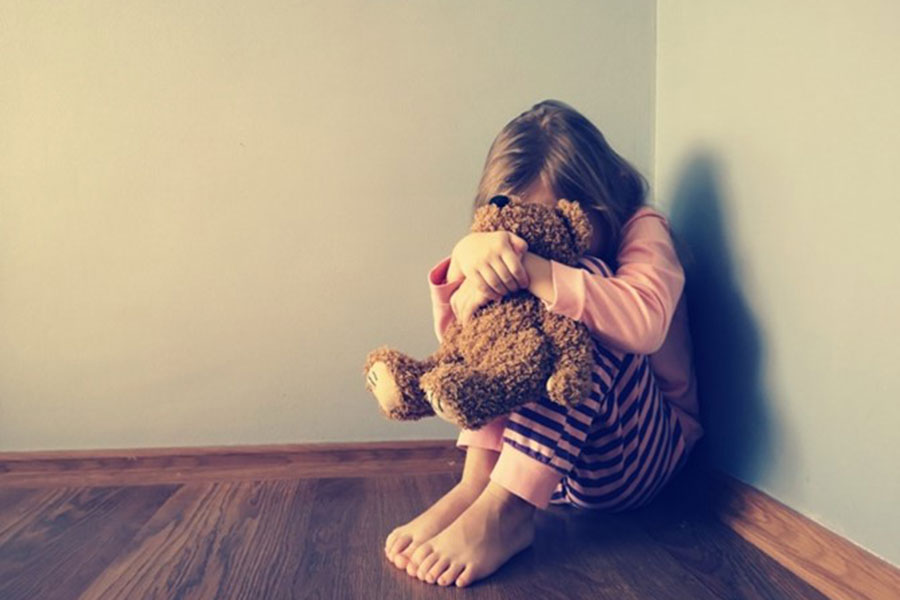Signs and Symptoms of Overwhelm in Children
What is it?
When a child feels emotionally overwhelmed it means that they feel smothered by their thoughts or emotions to the point that they feel that they cannot function. Overwhelm is an intense emotion and causes a flood of emotions and stress in the body. It can create a fight-flight-freeze-faint response which can cause a great deal of fear in children.
What causes it?
Overwhelm is caused by a number of different issues. These frequently create heightened stress and sense of being out of control or things happening ‘to’ us. Including:
- Stress
- Sleep deprivation
- Experiencing or witnessing a traumatic event
- Challenging life issues
- Changes which cause extreme stress
- Bereavement
- History of trauma
- Transitions e.g. moving house, a new sibling, new school
- Being overloaded – committing to too much
- Overscheduling time
- Overcommitting to events, jobs or deadlines
- Situations where we feel controlled by others / events
- Underlying medical conditions
What does it look like?
Whilst every child will have different signs and symptoms when they feel overwhelmed, they may have symptoms such as:
- Becoming angry or irritable over small things
- Bursting into tears for no known reason
- Being upset or tearful
- Difficulty relaxing – needing to be on the move
- Restless or agitated
- Frustrated when things do not go to plan
- Difficulty falling asleep or staying asleep
- Changes in eating patterns
- Feeling numb or frozen
- Feeling anxious
- Worrying, questioning or uncertainty
- Lashing out at others
- Panic attacks
- Negative or destructive thought processes
- Unable to stop their minds or ‘busy brain’
- Feeling tense – including headaches, jaw aches, grinding teeth and aches and pains
- Complaining of being exhausted or fatigued
- Difficulty concentrating
- Over reacting
- A sense of dread when having to approach a task
- A feeling that everything is ‘urgent’
- Flitting from task to task
- Being busy but achieving nothing
- Lack of pleasure or happiness from tasks
- Being self-critical
Note – If your child’s overwhelm is constant and causing them distress, or has no sense of an ‘end’ please ensure that you seek medical advice.
Reducing overwhelm
Watching a child become overwhelmed can make parents feel helpless. However, there are some steps that we can take to help them to move out of the heightened stress.
1 – Switch off electronics – electronics cause the brain to work at fast speeds and encourage our attention to flip constantly. They also release floods of hormones into the body to keep us ‘engrossed’. Whilst children may feel they help them to zone out, they will increase brain fatigue and prevent them processing their own overwhelm. Switching off electronics and encouraging a rest from blue lights can reduce the internalised stress.
2 – De-clutter – When we are overwhelmed our brain is constantly working. Reducing the clutter around us and getting things in order can reduce stress from the external environment and help us feel more balanced.
3 – Get active – Supporting children to be active for at least 60 minutes a day, ideally in the fresh air releases dopamine, serotonin and endorphins which reduce stress hormones and make us feel more positive.
4 – Encourage problem-solving – When we feel overwhelmed we can have a sensation of too much to do and no time to do it in. Helping children to develop their problem-solving skills can build their resilience and help them feel in control. This can be through mind-mapping all the things that are bothering them and then grouping them into urgent, middle and low priority so that they can focus on one task at a time.
5 – Relax and unwind – when we feel overwhelmed our brains feel constantly ‘switched on’. This is exhausting and challenging and the sense of stress increases heart rate, breathing and creates a sense of urgency. Helping children to learn to unwind through the use of breathing activities, meditation, hypnotherapy audios, therapeutic audios or soothing music can help them to calm their central nervous system.
 Further help
Further help
For more articles about mental health visit – https://dandeliontraininganddevelopment.com/articles-resources/
To learn more about child and adolescent mental health visit – https://dandeliontraininganddevelopment.com/courses/
For resources to support child and adolescent mental health visit – https://dandeliontraininganddevelopment.com/shop/
© Dandelion Training and Development – All Rights Reserved

